Andy Holder loves his job. It’s just a shame that the people he works for – or rather, on – don’t appreciate him. It’s not because he’s not good at it. He is – he’s got an award to prove it. No, it’s because they’re dead.
Holder is an embalmer – an unsung hero in the funeral business who gets a body ready for burial or cremation, running through procedures that would make most feel a bit queasy. “Basically, I give them a blood transfusion using formaldehyde,” he clarifies chirpily from the mortuary.
Embalming a body after a postmortem is more complicated. “There’s unstitching, and I might have to find the arteries one by one if all the organs have been removed and then replaced,” he says, matter-of-factly. Then there are the cosmetic things. “Washing hair, setting features, shaving men and applying makeup to women, if their loved ones think it’s appropriate. I can rattle through eight people a day,” he laughs.
His personable nature, coupled with his technical expertise, have won Holder the accolade Best Embalmer at this year’s Good Funeral awards, the sector’s Oscars. The Good Funeral Guide, the not-for-profit organisation that set up the awards, offers advice on alternative services, burial grounds, coffin types. There’s even a DIY guide. “You need strong friends for that,” jokes Holder. “But I’ve embalmed plenty of people on their own beds. I’ve even done one on a kitchen table.”
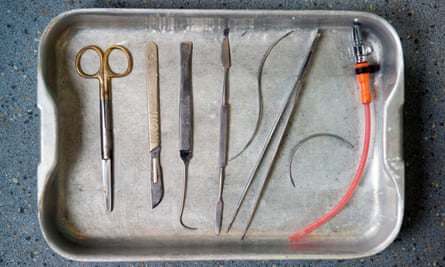
Holder, 50, was a bricklayer before a friend who worked at the local crematorium suggested a career change. A spooky late-night visit to an undertaker who allowed Holder to watch him working – “two straight embalmings and a postmortem” – and his fate was sealed. “I knew I could do this job – it takes a certain type of person who can dispassionately cope, and not be shocked and feel strange – or ill.” He started training in 1998, the day after the third of his five children was born, and began work full-time in 2001. Now, almost 30,000 embalmings later and with his 20-year-old son Brandon training alongside him, he remains delighted with his career choice.
Although the vast majority of his clients are elderly or ill when they die, Holder has worked on the bodies of people who have died in extremely distressing circumstances. “Victims of terror attacks, plane or car crashes – I’ve seen it all,” he says. “But they’re all people. I do the absolute best for every one of them. But then I have to move on. You can’t dwell on them – it would drive you crazy.”
He knows personally how important his job is to the families of the deceased, even though he rarely meets them. His grandmother died 30 years ago – long before he had begun his own training. “Mum had brought her home the night before the funeral. She looked bloody awful. They’d put blue eyeliner on her, sewn up her mouth and she didn’t have her teeth in. The memory has stuck with me ever since. That’s what a bad embalming job does. A good one can help immeasurably.”

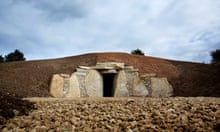

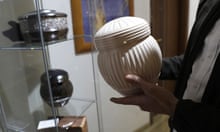
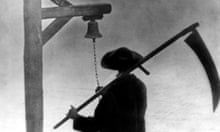


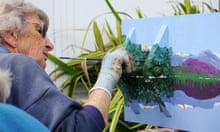
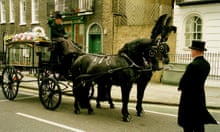
Comments (…)
Sign in or create your Guardian account to join the discussion